Every guinea pig owner should know that guinea pigs are extremely sensitive animals in every sense. This also means they cannot eat anything you want to give them. So, doing a good research on things they can eat is needed.
Can guinea pigs eat frozen peas? It is recommended for guinea pigs not to eat frozen peas or frozen vegetables in general. The thing is that the metabolism of a guinea pig cannot process cooked food, and generally frozen vegetables are boiled before being frozen. However, if the vegetables are not cooked in any way before being frozen, then yes, you can give them to your guinea pig.
The most common mistake owners do with their pets is to feed them whatever they are eating at the moment without putting thought into it. This is especially bad if you own a guinea pig. In this article, we are going to talk about frozen peas and if guinea pigs can eat them.
Table of Content
Additional Information on Frozen Vegetables
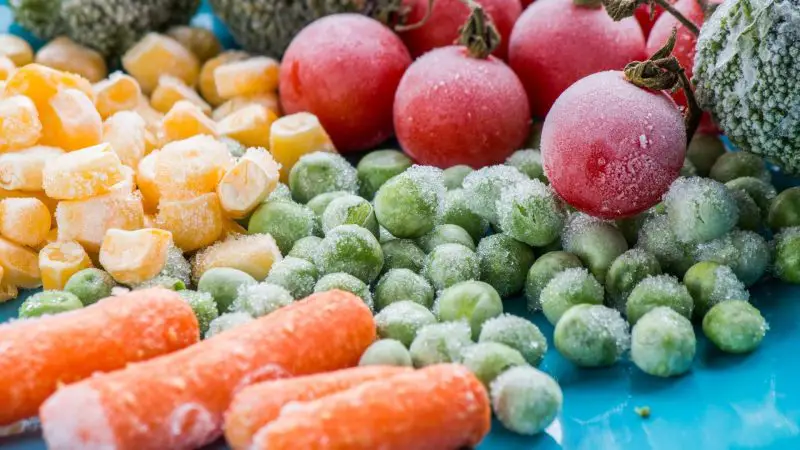
Most people will say you should never give frozen vegetables to your guinea pig. When we say frozen vegetables, an image of a supermarket bag filled with some random frozen vegetables and a lot of chemicals comes to your mind.
Those types of frozen vegetables are not safe at all for your guinea pig. These bags of frozen vegetables contain a lot of preservatives that can be very damaging for your little friend.
Also, they are usually cooked before being frozen, so they lose their nutrients and they cannot be processed by the digestive system of a guinea pig anymore.
On the other hand, if you buy fresh vegetables, you can put them in the freezer to help them stay fresh a little longer. But, don’t keep them too much in there before feeding them to your guinea pig. Freezing can make food lose its nutrients after a longer period of time.
Is Frozen Beans Good for Guinea Pigs? | Health Benefits
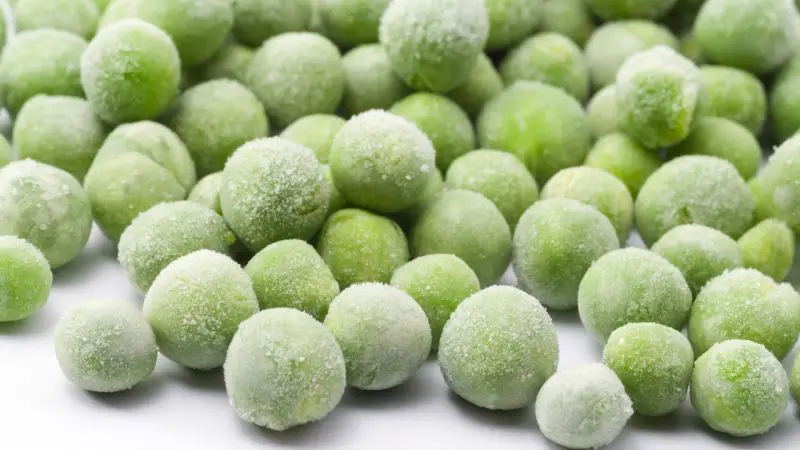
Frozen vegetables are not safe for guinea pigs, so frozen beans are not good for them. The good news is that peas have a lot of benefits for guinea pigs mostly because they contain a good amount of vitamin C. Peas are one of the vegetables rich in vitamin C, so they will ensure the proper overall functioning of the guinea pig organism.
Vitamin C is a vitamin their bodies cannot produce or store. So, when you give vitamin C to your guinea pig, they either absorb it or eliminate it through urine. However, for both humans and guinea pigs, vitamin C is well-known for its amazing properties and its high necessity for the body to function the way it is supposed to.
Nutrition Facts of Frozen Peas
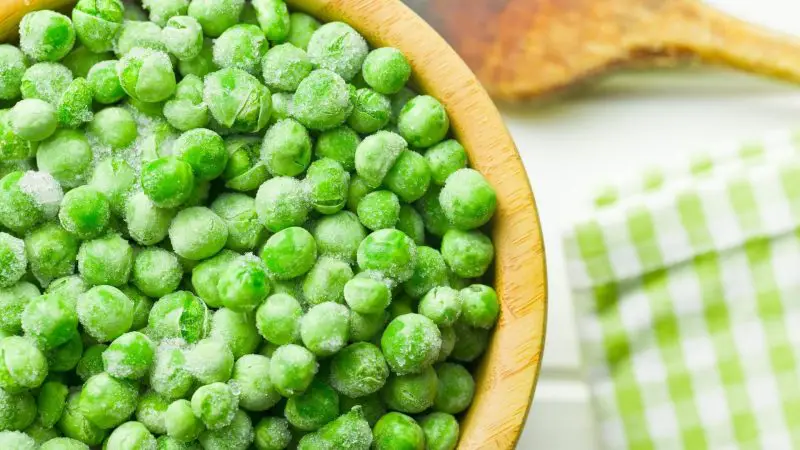
Vitamin C
Since they cannot produce vitamin C by themselves and it is so important, peas are a good source of vitamin C. It helps the guinea pigs to fight certain diseases, it helps with the metabolism.
Vitamin C deficiency makes guinea pigs develop scurvy. This is a certain condition characterized by loss of appetite, loss of energy, depression, and a lot of other symptoms. Other symptoms are slow wound healing, under the skin bleeding, rough hairs, diarrhea, and ultimately, sudden death if the scurvy is not treated properly.
In order to prevent this condition, make sure your guinea pig gets 10 to 30 mg of vitamin C daily, even a little bit more for pregnant sows. The pellets you feed them probably contain vitamin C but make sure you also supplement it with a good variety of vegetables and a little amount of fruit.
It is better if you give them a little more vitamin C because it will be eliminated through urine. But if you give them less, problems can appear.
Vitamin A
This vitamin is a lot more helpful during the growth period of guinea pigs. However, its benefits are well known. Vitamin A can be stored by guinea pigs, more specifically by their livers. Logically, too much vitamin A causes liver damage.
This amazing vitamin helps to improve eyesight. It is good for normal development of the cell, a properly functioning immune system, healthy skin and bone structure (teeth included).
Related Questions
What Does a Regular Diet of a Guinea Pig Look Like?
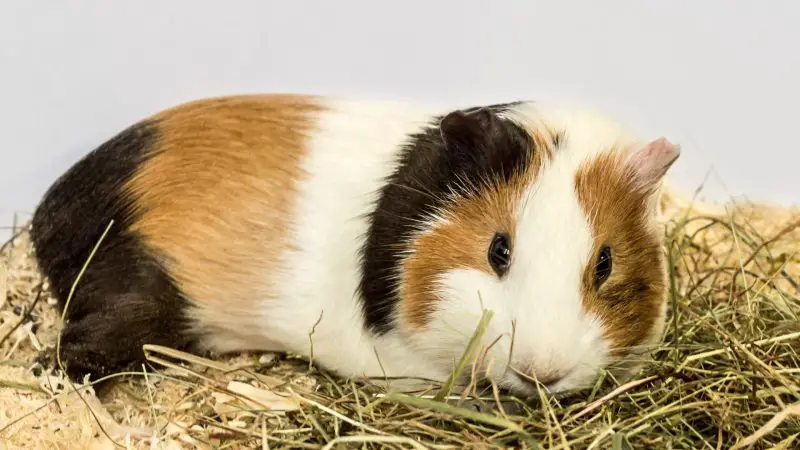
Guinea pigs should always have fresh water and hay on hand. Hay has a lot of health benefits for guinea pigs, one of them being that it erodes their teeth so they don’t grow too long. Freshwater is, of course, necessary all the time. Pellets also play an important role, just like vegetables and fruit.
These three should be given daily in moderation. Pellets are necessary daily, while fruit and vegetables should be different every day to increase variation and to reduce the risk of your guinea pig becoming bored.
Also, you need to make sure you get the perfect diet for your guinea pig, rich in vitamins and minerals, but not too rich. A balanced diet should contain good sources of vitamin C, calcium, phosphorus, magnesium, vitamin A and vitamin B-complex.
How Many Peas Should I Give to My Guinea Pig?
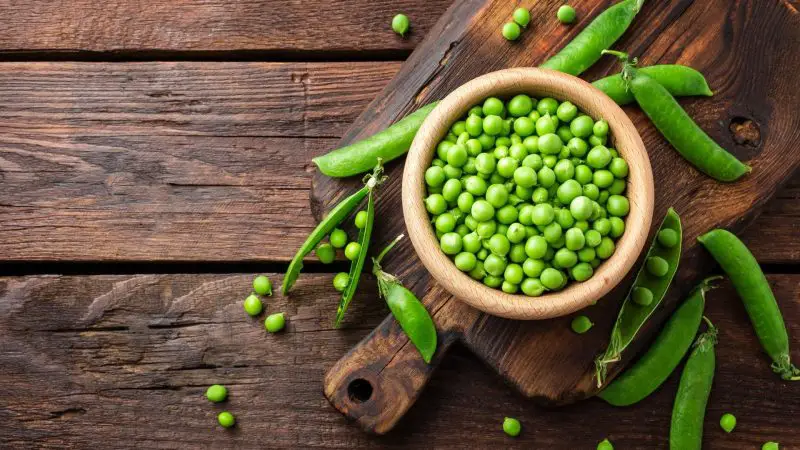
You can give peas to your guinea pig once a week. A portion should not be more than 1 to 2 pea pods. This is because of the amount of sugar, phosphorus, calcium, and the peas’ acidity. If you feed them too many peas, your little friends might have a problem with having too many of these substances.
Why Aren’t My Guinea Pigs Eating Peas?
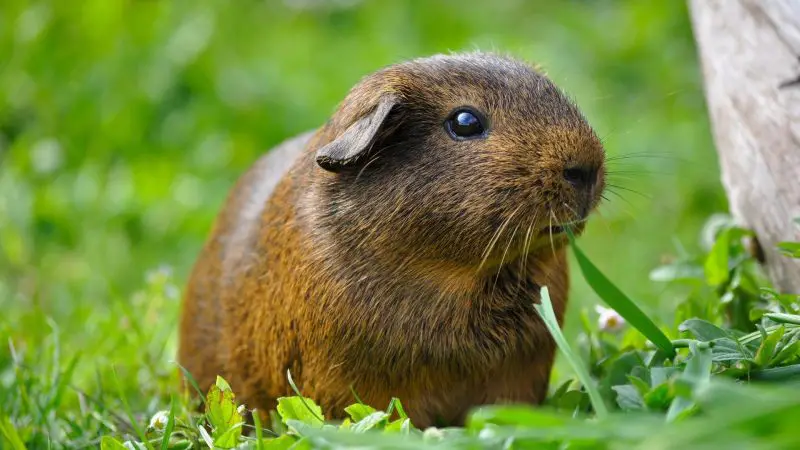
Guinea pigs are a lot more complex than they seem at a first glance. They have their unique personalities and tastes as well.
Summary
We have also made a full list of foods that guinea pigs can and can’t eat (150+ Types of Foods). Be sure to also check our recommended products page for everything you will ever need to assure a happy life for your guinea pigs. Hope this information was helpful and you have found the answer you were looking for.
List of Sources
A Care Guide for Your Guinea Pig (Cavia Porcellus)
Nutrient Requirements of Laboratory Animals: Fourth Revised Edition
The Effects of Diet on Anatomy, Physiology and Health in the Guinea Pig
